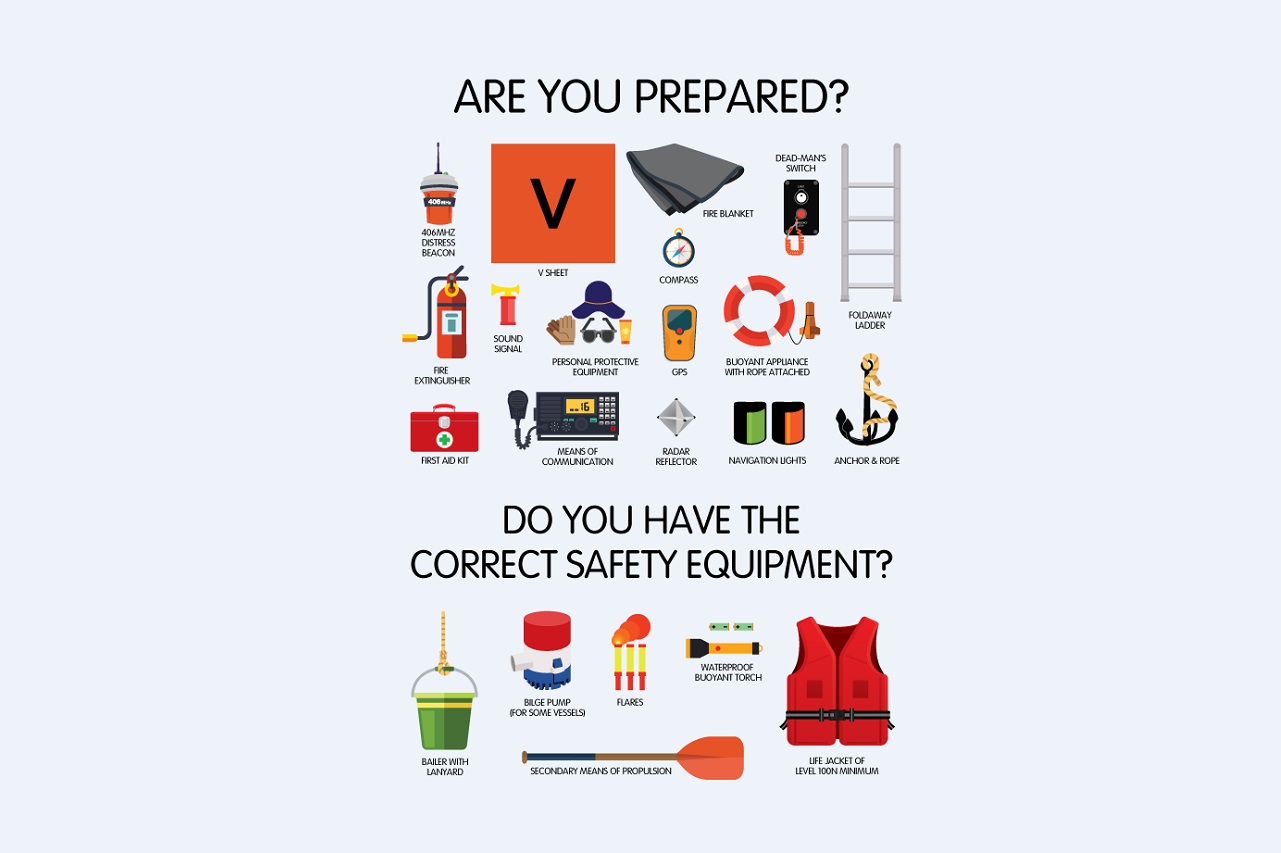The minimum you need on your tender:
- Lifejacket of level 100N minimum (consider coastal life jacket 150N)
- Bailer with lanyard to secure it to the vessel
- Bilge pump – (not required for open vessels less than 5 metres with ready access to the bilge)
- Flares – 2 red distress & 2 orange smoke (must have if more than 2 nautical miles from land or operating in remote enclosed waters)
- Secondary means of propulsion
- Torch (waterproof, floating and spare batteries).
This equipment is the minimum for low risk operations. However, tender operations can have different set of risks so it is reasonably practicable to consider if they require a different set of safety equipment.
Owners, masters and crew on all commercial vessels are required by the general safety duties to ensure their operations are safe. Depending on the risk profile of your operation, additional safety equipment on a tender MUST be added to reduce the risks. Completing a risk assessment will help you to make all operations safe to the level required by the law.
Read more:
In your safety management system, risk assess the need for:
- Communication equipment (VHF, satellite phone, mobile phone)
- EPIRB or PLB
- Anchor and rope
- GPS/ compass / chart plotter
- Tender tracking system (AIS)
- First aid kit
- Appropriate clothing and PPE (gloves, hat, sunscreen, sunglasses, etc)
- Lifejacket wear
- Fire extinguisher and fire blanket
- V Sheet
- Means to retrieve a person from the water (eg: foldaway ladder)
- Dead man switch (in case you fall overboard)
- Radar reflector
- Sound signal
- Navigation lights
- Lifebuoy/ buoyant appliance with rope attached
Other things to consider:
- Will the equipment float free and how will I access it if my tender swamps/capsizes?
- Does any equipment need servicing? (Add it to your maintenance plan)
- Does any of the equipment need to be waterproof?
- Does the equipment need to stay dry?
- Does any equipment have an expiry date?
- Does it have a home on your vessel?
- Does the equipment have batteries?
- Are batteries charged?
- Is the equipment easily acceptable?
- Is your equipment in good working order and fit for purpose?


